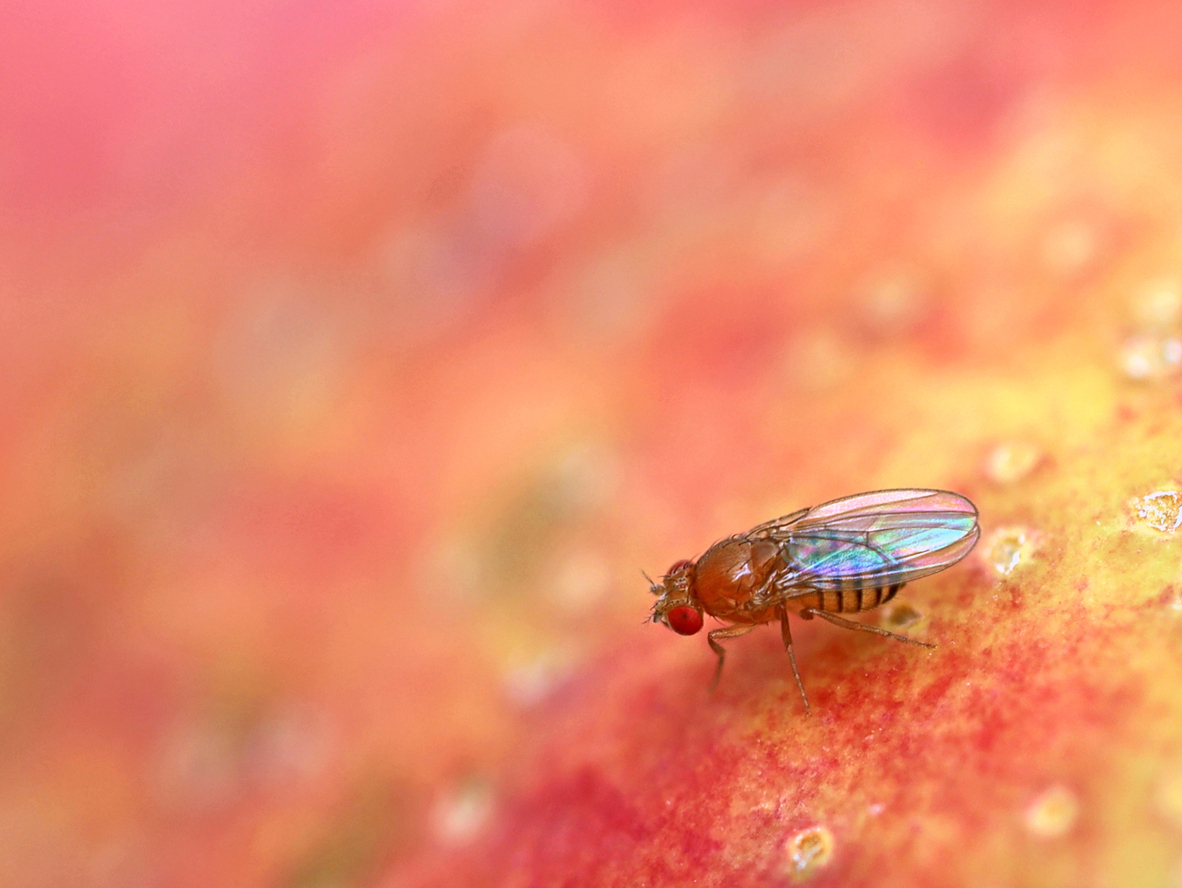
Scientists Induce “Virgin Birth” on Fruit Flies
August 2, 2023| |
University of Cambridge researchers were able to identify the genes responsible for parthenogenesis, or “virgin birth.” They were able to confirm the genes' function and, for the first time, engineered virgin birth to happen in an animal that is known to sexually reproduce.
Initially, the researchers sequenced two strains of Drosophila mercatorum. One of the strains needed males to reproduce, while the other was known to undergo parthenogenesis. They compared the two strains by switching genes on and off when the flies were reproducing without fathers, which led them to identify candidate genes for parthenogenesis. They then altered these genes using a different species of fruit fly, the Drosophila melanogaster, to confirm their findings.
The researchers were successful in inducing parthenogenesis in D. melanogaster, having observed that a virgin fly is able to produce an embryo that can develop into an adult. They also noted that the trait can be passed on through generations, offspring are always females, and that the genetically manipulated female flies would have virgin births about 40 days after unsuccessfully finding a mate.
Switching to parthenogenesis can be a survival strategy for some species, including insect pests. The findings can help support further research to find out why virgin birth is becoming more common in pest species and help develop a model for parthenogenetic development.
Read the news release by University of Cambridge and the scientific article in Current Biology to know more.
| |
You might also like:
- Scientists Control Fruit Fly Population Using CRISPR
- UC San Diego Researchers Use CRISPR to Target Global Crop Pest
- New System Effectively Turns Split Gene Drives Into Full Gene Drives
Biotech Updates is a weekly newsletter of ISAAA, a not-for-profit organization. It is distributed for free to over 22,000 subscribers worldwide to inform them about the key developments in biosciences, especially in biotechnology. Your support will help us in our mission to feed the world with knowledge. You can help by donating as little as $10.
-
See more articles:
-
Plant
- CRISPR Alters Onion for the First Time
- Yield10 Bioscience Files Request for Regulatory Status Review of Omega-3 Camelina
- Bayer Biotech Corn Launched in Indonesia; To Boost Yield by 30%
- ISAAA Inc. to Hold ASCA6 on September 11-15 in Indonesia
-
Animal
- Scientists Induce “Virgin Birth” on Fruit Flies
-
Food
- Biotech Company To Launch Near Zero Sugar Juice
- APEC Economies Tackle Regulatory and Policy Solutions for Agri-biotech
-
Health
- Scientists Discover a Protein’s Step-By-Step Activation Process
- Researchers Develop In Vivo Gene Editing Model to Treat Blood Disorders
-
Read the latest: - Biotech Updates (February 11, 2026)
- Gene Editing Supplement (January 28, 2026)
- Gene Drive Supplement (February 22, 2023)
-
Subscribe to BU: - Share
- Tweet

